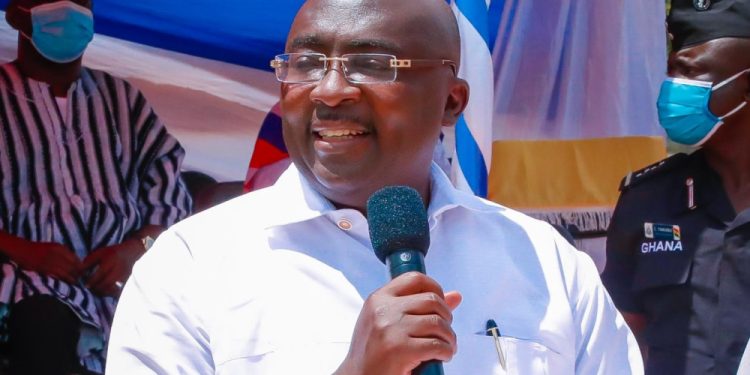Flagbearer of the governing New Patriotic Party (NPP), Dr. Mahamudu Bawumia, says if he’s given the nod in the 2024 general election, his administration will shine a light on environmental conservation, social equity, and economic growth.
Illegal mining outlawed fishing activities, and other activities detrimental to the environment, according to the Vice President, will be addressed to provide sustainable jobs for the youth.
The Vice President stressed that climate change is a critical global challenge and that it was positive to see that it is receiving attention on the global agenda.
Climate change has the potential to affect countries around the world, regardless of their level of development, and its impacts can be severe in terms of extreme weather events, rising sea levels, food security, and more.
Promising to prioritise climate change in his manifesto, Dr. Bawumia highlighted the significance of recognising the importance of climate action and sustainability.
“Let us leave a legacy of a thriving, sustainable, and vibrant blue economy for generations to come. For all these reasons, the NPP manifesto under my leadership will have a strong inclusive blue economy component because I believe in the great potential that an inclusive sustainable blue economy can contribute significantly to the creation of jobs, food security, and economic growth for Ghanaians and Africans in general,” he said.
In underscoring the importance of human capital in harnessing the opportunities in the blue economy, Dr. Bawumia said, “None of our dreams of ushering a successful blue economy in Ghana and Africa as a whole would be realized without the human capital needed to grow and sustain it.”
Pro Vice-Chancellor of the University of Cape Coast, Professor Rosemond Boahene, emphasised the significance of climate change during the workshop and advocated an immediate and strong collaboration between government and academia to address the dangers.
This highlights the recognition of climate change as a critical concern that requires a multi-faceted approach involving both academic research and government policy.
The policy interventions of digitalising the distribution of premix fuel and denying licenses to foreign vessels are measures aimed at protecting coastal communities and their livelihoods in the context of fisheries and marine resource management.
These policies can have a significant impact on the sustainability of fisheries and the well-being of coastal populations.








